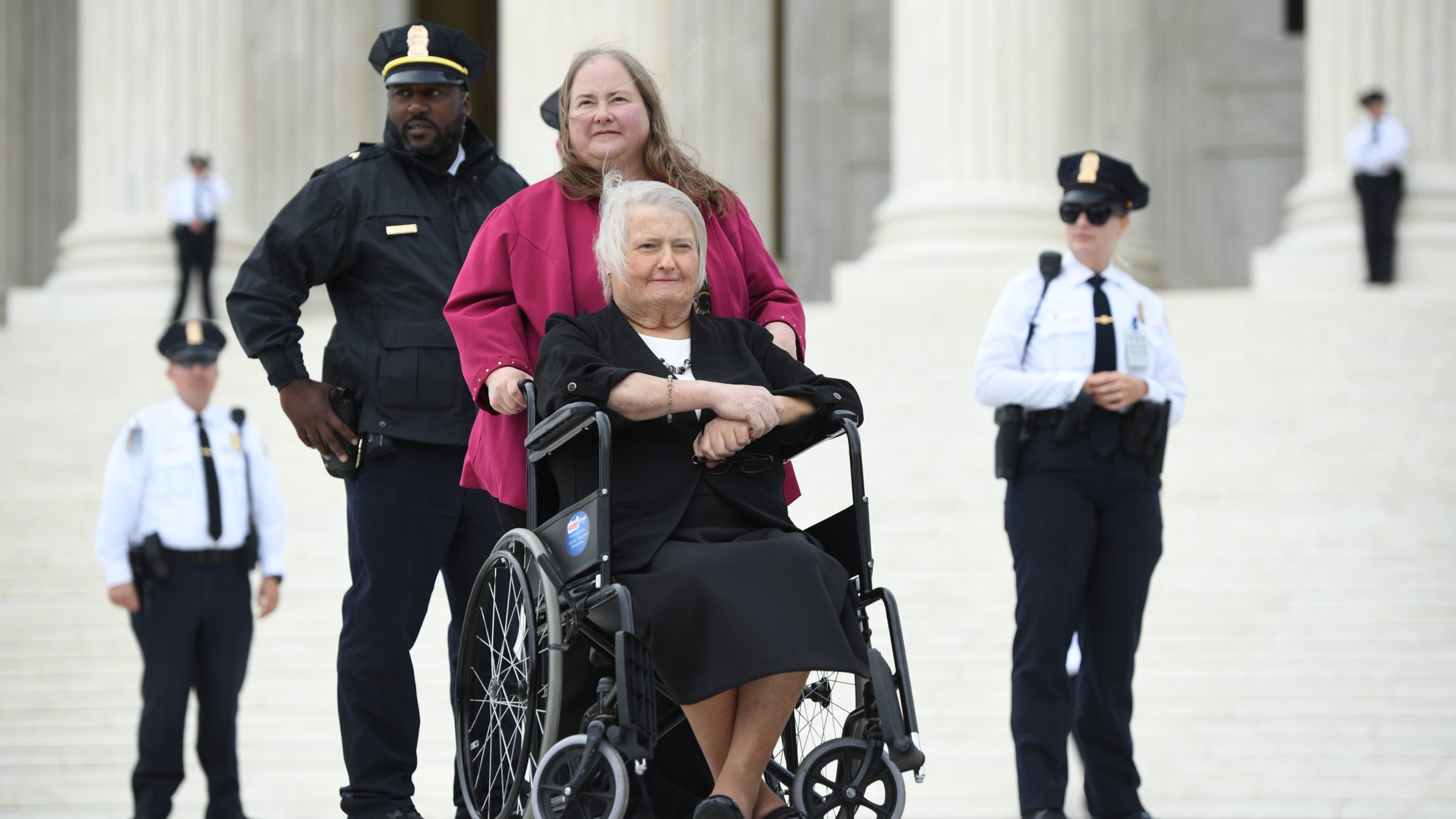The right-wing war on trans children is unfolding with frightening speed. States have introduced curriculum restrictions that bar any discussion of their existence, and at least six states now prohibit trans students from using facilities aligned with their gender. And lest people think that federal judges might step in to help, those courts are stacked with reactionary Trump judges whose decisions neatly align with the anti-trans “values” of conservative politicians.
Among the more recent legal attacks is a lawsuit filed by 20 conservative attorneys generals against President Joe Biden’s administration over guidance that provided rudimentary protections for transgender adults and children in schools. Just two years ago, the Supreme Court held in Bostock v. Clayton County that, at least in the employment discrimination context, “discrimination based on transgender status necessarily entails discrimination based on sex; the first cannot happen without the second.” Now, this group of apparently-amnesiac AGs is arguing that the treatment of trans people in school and the workplace “properly belongs to Congress, the States, and the people.”
This is not a new legal argument. It is the lazy repackaging of conservative opposition to the holding in Bostock, hopeful for a friendlier audience. But this time, the AGs got one: Charles Atchley, a Trump appointee to the U.S. District Court for the Eastern District of Tennessee. They also got a predictable and depressing result: The administration, per Atchley, is blocked from implementing fundamental protections for trans children and adults.
The upshot of Bostock is that transgender workers are protected under Title VII of the Civil Rights Act of 1964, as amended, which covers workplace discrimination. The Biden administration quite reasonably extended that logic to Title IX of the Act, which covers discrimination in public schools, given that Title IX also prohibits discrimination “on the basis of sex.” Thus, the administration announced that it would investigate things like a teacher refusing to use a student’s correct pronouns, or forcing someone to use the bathroom that doesn’t conform with their gender.

The late Aimee Stephens, one of the petitioners in Bostock v. Clayton County, on the steps of the Supreme Court, October 2019 (Photo by Saul Loeb / AFP)
Much of Atchley’s opinion is a relatively dry discussion about when states have standing to sue, and the labyrinthine workings of federal administrative rulemaking procedure. You have to wade through about 40 pages of this stuff before you get to the real meat of the opinion: While the federal government has “a public interest in enforcing Titles VII and IX to the fullest extent permissible,” Atchley writes, the attorneys general have “a strong public interest in enforcing their duly enacted state laws and protecting the underlying policies.” In other words, although the federal government cares about civil rights, some states also care very deeply about ignoring civil rights, and the hallowed mantra of “states’ rights” compels judges like Atchley to bow to the desire of conservative politicians to discriminate against people they don’t like.
To block the administration’s rules, Atchley engages in some heroic legal sophistry. First, he acknowledges that Bostock says that “it is impossible to discriminate against a person for being homosexual or transgender without discriminating against that individual based on sex.” He then turns around and characterizes Bostock’s holding in absurdly narrow terms, asserting that the Court “only held that Title VII prohibits an employer from ‘fir[ing] someone simply for being homosexual or transgender.’” This is a common conservative strategy: taking a broad rule, like “trans people have rights and it is illegal to discriminate against them,” and repackaging it as limited only to the facts of the case, like “trans people have the right not to be fired for being trans, but doing a multitude of other horrible things to them is fine.”
This isn’t the only recent occurrence where a Trump judge kicked trans kids in the teeth. Back in March, Biden’s Department of Health and Human Services issued benign guidance saying that hospitals can’t deny people gender-affirming care, such as puberty blockers or hormone therapy, when appropriate. In May, Judge Daniel Traynor, a Trump appointee best known for tweeting about how much Hillary Clinton lies, issued a nationwide injunction barring that guidance from taking effect.
To get there, Traynor warped the guidance’s directions on how parents could file complaints against discriminatory providers and went on a transphobic flight of fancy, arguing that the guidance would burden a provider who “refuses to gender transition their child, of any age, including an infant.” Traynor continued: “The thought that a newborn child could be surgically altered to change gender is the result of the Biden HHS Notification.” Doctors do not recommend genital surgery for minors, much less newborns, but conservatives like Traynor are happy to push this fearmongering conspiracy theory anyway.
These outcomes are only emboldening the reactionaries who hold political power in red states. Just last week, a near-identical coalition of state attorneys general sued the Biden administration to block a federal school meals program that bars discrimination on the basis of sexual orientation and gender identity. In a matter of weeks, the language of the right-wing war on trans kids has moved from an esoteric debate about the outer limits of Bostock to an unapologetic effort to deny LGBTQ kids lunch.
Lower court fights get far less attention than Supreme Court opinions, but they are no less harmful. And the proliferation of lawsuits like these is a consequence of a federal judiciary stocked to the gills with transphobes and conservative culture warriors who act as dependable foot soldiers for minoritarian rule. Democratic presidents can issue executive orders to protect trans people, and agencies can issue rules and guidance, and liberal state governments can pass antidiscrimination laws of their own via the democratic process. But when the arbiters of what the law permits and what it does not are people like Atchley and Traynor, these efforts are for naught.

